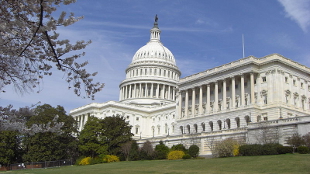 WIKIMEDIA, POCO A POCOIf Congress fails to approve a plan to reduce the federal budget deficit by 1.2 trillion before January 2, 2013, federal agencies, including those responsible for funding life science researchers, will suffer automatic budget cuts—known as “sequestration”.
WIKIMEDIA, POCO A POCOIf Congress fails to approve a plan to reduce the federal budget deficit by 1.2 trillion before January 2, 2013, federal agencies, including those responsible for funding life science researchers, will suffer automatic budget cuts—known as “sequestration”.
With that prospect looming, the California Healthcare Institute (CHI)—a non-profit advocacy group for the state’s biomedical research industry—has pleaded with Congress to ringfence the estimated $2.5 billion that would be slashed from the National Institutes of Health (NIH) budget. Such a reduction would seriously damage the Californian economy and compromise scientific innovation across the United States, the CHI argues in a letter addressed to political leaders of both parties.
The CHI also stated that the success of California's life science industry—which employs some 270,000 workers, pays more than $20 billion in wages every year, and accounts for $18.6 billion in global exports, according to the CHI letter—is the result of a combination of funding from the NIH and venture capitalists. Sequestration puts that partnership at ...













